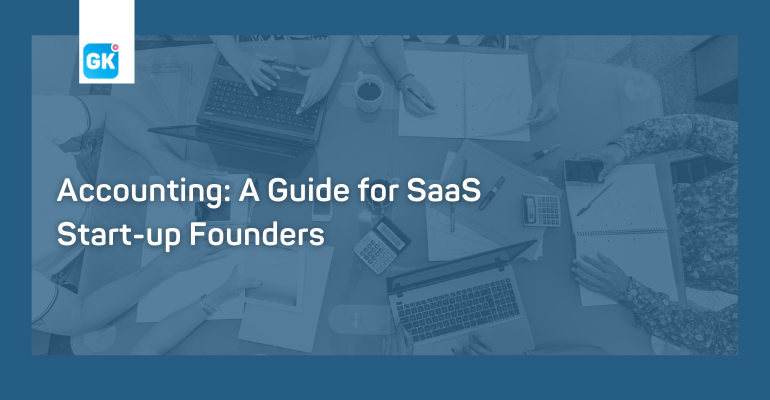Accounting: A Guide for SaaS Start-up Founders

Accounting: A Guide for SaaS Start-up Founders
A Guide to Accounting for SaaS Start-Up Businesses
Software is one the fastest-growing industries worldwide. As we move to a digital-based world, software as a service, known as SaaS, becomes more prevalent and profitable. It is important that SaaS start-ups have the right accounting system in place from the beginning.
Because SaaS companies generally operate as subscription businesses, they need an accounting solution with experience and infrastructure in place to seamlessly support the needs of a SaaS business model.
Many start-ups do not prioritise accounting while they are working to get their business up and running. They are focused on creating a great product and building a strong team. However, the sooner start-up business leaders consider their accounting options, the less stress they will have to deal with in the future.
What Makes SaaS Accounting Different
Revenue tracking is the most notable difference in SaaS accounting because of the subscription model used by SaaS businesses. Customers are charged subscription fees and add-on services fees, which require routine “maintenance” as customers upgrade, downgrade, or opt in/out of different services.
SaaS businesses also use a different set of accounting tools — like subscription management software and recurring billing platforms — which demand different skills and knowledge of best practices than traditional start-up or small business accounting.
The Importance of Reliable Accounting for SaaS Companies.
Good accounting provides insight into a company’s revenue and operations. For a fast-growing SaaS start-up, access to this information can make or break the company’s future.
Along with the functional benefits of good accounting, having your start-ups financials in order streamlines the process of raising venture capital funds or preparing your business for an exit. If your start-ups do not have clear, reliable financial records and up-to-date financial statements, you may have a hard time raising capital, delay the fundraising due diligence process, or take a hit on your earnings in the event of an exit.
Key Elements for SaaS Accounting
The differences between regular accounting and SaaS accounting are clear. Solutions for SaaS accounting have to meet these certain elements to truly benefit these tech start-ups.
Cash vs Accrual Accounting
Many start-ups begin by tracking finances using cash basis accounting. Cash accounting is the practice of counting revenue as you receive cash and subtracting costs from that number. This method is easy to use and simple to maintain, and good for small businesses or those with little inventory or customer base — but it is not in line with accounting standards and not recommended for SaaS businesses.
Accrual basis accounting does not count revenue until cash is earned, regardless of how much cash is on hand. This method of accounting is a requirement under UK and Irish accounting principles (FRS 102) and is better for SaaS businesses with subscription-based income.
Financial Management
For your start-up business to grow, you are likely to need capital. Having professionally prepared financial statements and projections can help your start up convince investors and business leaders that your business will be profitable and can offer them a good return on investment
The Best Way to Manage Your SaaS Start-ups Accounting
Cloud based accounting software can help your SaaS start-up create strong accounting procedures from the beginning. Cloud accounting tools such as Xero, can provide the following benefits to start-up companies.
Tech-Powered Efficiency
Using a cloud-based accounting software uses artificial intelligence and machine learning to complete your finances daily and manage all accounting tasks efficiently and accurately.
Access to a Team of Experts
Accountants using cloud-based accounting tools have instant access to your business accounts. This gives you and your accountant a real time view of your business’ finances. Working with a professional accountant can provide you with expert insights which will help your business make informed decisions.
Instant Access to Data
Using a cloud accounting tool allows you to view your finances in real time from any location at any time. This gives you an insight into how your business is performing throughout the month or year.
Get in Touch
Gallagher Keane provides cloud accounting services for many start-up businesses. Our expert team of accountants have a deep understanding of SaaS businesses, providing clients with an excellent standard of service. If you are interested in working with a cloud-based accounting firm, get in contact to see how we can help your business.


